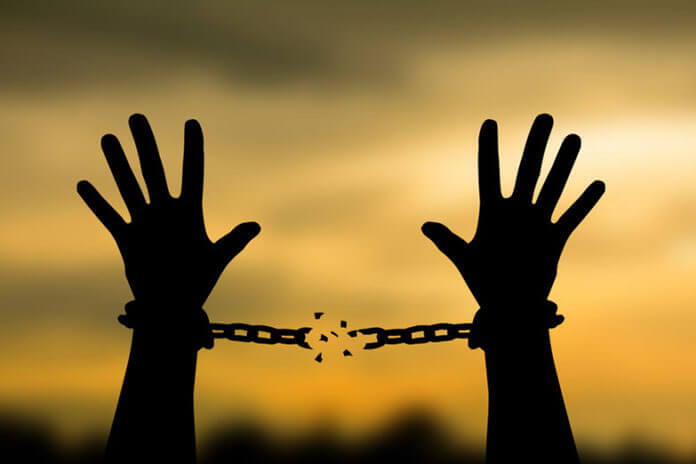BELIZE CITY, Wed. July 28, 2021– On August 1, 2021, Belizeans of African descent and others in the community who acknowledge the evils of slavery will celebrate what took place on August 1, 1838: the physical emancipation of enslaved blacks from a dehumanizing system of forced labour that had been imposed on them by European colonizers. While the UBAD Education Foundation (UEF) has carried out activities annually for a number of years in celebration of Emancipation Day, this is the first year that African Emancipation Day will be observed in Belize as a public and bank holiday.
The chairperson of UEF, YaYa Marin Coleman, remarked when interviewed by Amandala that the public and bank holiday pales in comparison to the true importance of the event. “What’s important is that we continue the awareness, the advocacy and that we link with other black people, globally, and that we do that because we are African people and we owe it to our ancestors, to ourselves and to our unborn children,” she said.
The activities that UEF has coordinated in commemoration of Emancipation extend from the 26th of July until August 20 — almost an entire month rather than just a day. She is encouraging members of the public to, on Saturday, July 30 at midnight, start drumming throughout the country with any object that they may find suitable.
In addition, there will be many conversations hosted by UEF to raise awareness on black empowerment. The first of these UEF activities will be a Zoom “Know Your Past” conference hosted by the Leo Bradley Library on July 30, from 10 to 11:30 a.m. It will feature YaYa Marin Coleman, who will be moderating a discussion about Belize’s African Emancipation Jubilee stories. Interested persons may view the conference via the Leo Bradley Library’s Facebook page.
Following this event, on August 1, from 6 a.m. to 7a.m., there will be a Belizean National Drum call. This event will include the pouring of libations, and the release of flower petals. It is believed that, through libations, people call on and recognize the cosmos (the universe seen as a well-ordered whole) as a part of us and that each person is more than a mere body. UEF calls on all Belizeans to join in pouring libations. Each pour is to be accompanied by an intention of clear thought.
Later that day, from 10:30 a.m. to noon, there will be a community conversation with Belizean psychiatrist, Dr. Elma Whittaker-Augustine, who will detail the psychological impact of enslavement on African people. Marin-Coleman has explained that chattel enslavement caused the African people to be seen as property, rather than human beings. Their family structure was thus dismantled. Even today, the Post-Traumatic Enslavement Disorder, as described by Marin-Coleman, is carried in the African psyche and haunts African family institutions to this day.
The final event to take place on African Emancipation Day on August 1 will be a “Free Yuh Mind” segment with the United Kingdom scholar/activist Sista Esther Stanford-Xosel. It will be aired on Krem TV and Krem Radio, and the login information for the Zoom meeting can also be accessed by visiting the Krem Sunday Review Facebook Page. These events will be coupled with a social media challenge. Persons are asked to document how they are remembering their African ancestors by uploading a Facebook, Instagram, Twitter or Tiktok Post with the hashtag, ‘#AfrikanEmancipationDayBelize’.
Although enslaved Africans were physically emancipated, Yaya Marin Coleman noted, “We are still enslaved. Mentally we are enslaved; we are colonized; we still have a queen as a head of state in Belize. These are the same enslavers.” She further asserted that Belizeans should be taught in school about the injustices inflicted upon their ancestors. She further called on African Belizeans to embrace their heritage and to not contribute to the inhumanity that the enslaved Africans were faced with. She advises Belizeans to abstain from phrases like “slave” and “slave trade”. These are derogatory and align with the colonial view that the enslaved were objects as opposed to human beings.

